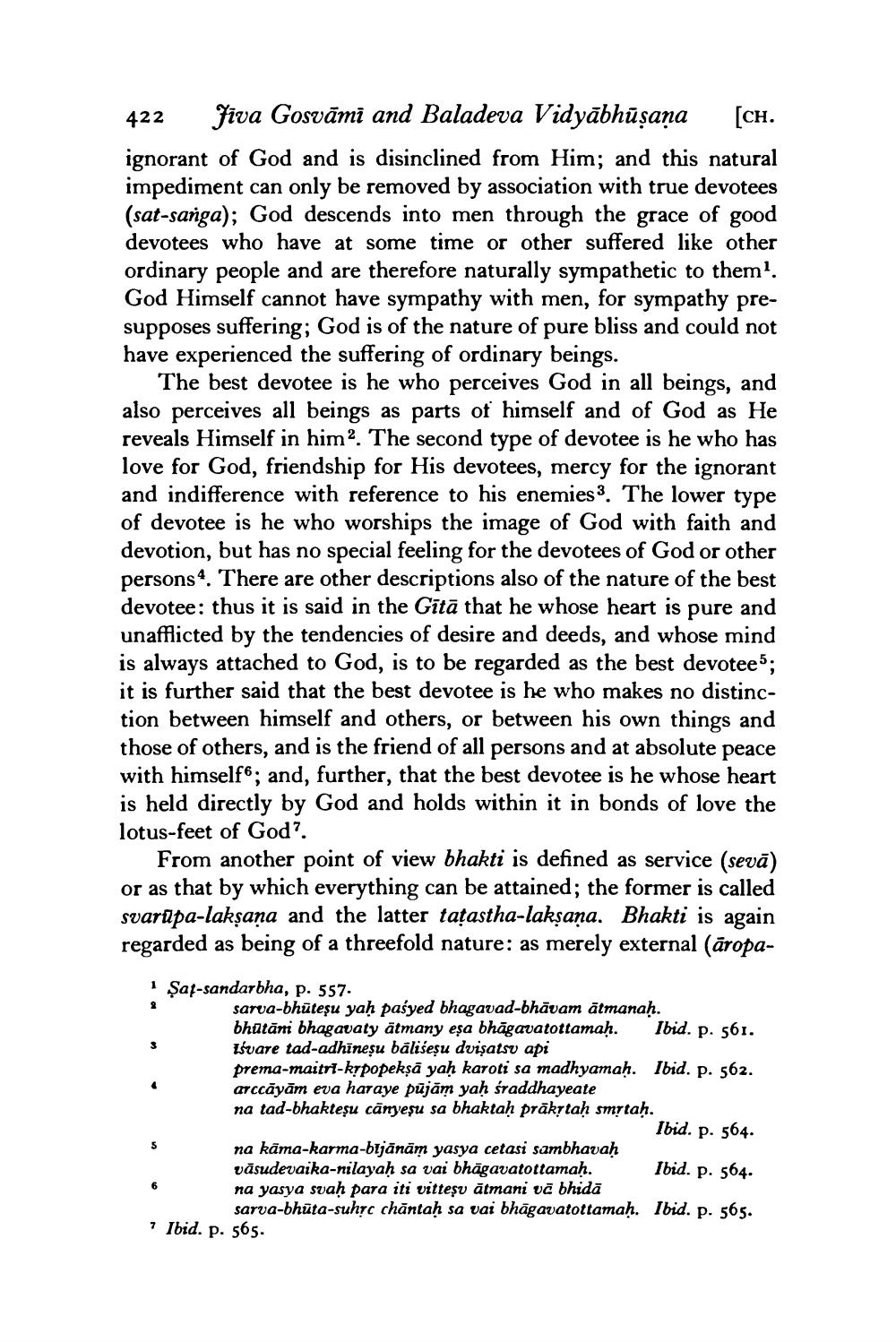________________
422 Jiva Gosvāmī and Baladeva Vidyābhūşana [CH. ignorant of God and is disinclined from Him; and this natural impediment can only be removed by association with true devotees (sat-sanga); God descends into men through the grace of good devotees who have at some time or other suffered like other ordinary people and are therefore naturally sympathetic to them. God Himself cannot have sympathy with men, for sympathy presupposes suffering; God is of the nature of pure bliss and could not have experienced the suffering of ordinary beings.
The best devotee is he who perceives God in all beings, and also perceives all beings as parts of himself and of God as He reveals Himself in him. The second type of devotee is he who has love for God, friendship for His devotees, mercy for the ignorant and indifference with reference to his enemies 3. The lower type of devotee is he who worships the image of God with faith and devotion, but has no special feeling for the devotees of God or othe persons 4. There are other descriptions also of the nature of the best devotee: thus it is said in the Gitā that he whose heart is pure and unafflicted by the tendencies of desire and deeds, and whose mind is always attached to God, is to be regarded as the best devotees; it is further said that the best devotee is he who makes no distinction between himself and others, or between his own things and those of others, and is the friend of all persons and at absolute peace with himself6; and, further, that the best devotee is he whose heart is held directly by God and holds within it in bonds of love the lotus-feet of God?.
From another point of view bhakti is defined as service (sevā) or as that by which everything can be attained; the former is called svarapa-laksana and the latter taţastha-laksana. Bhakti is again regarded as being of a threefold nature: as merely external (āropa
Şaf-sandarbha, p. 557.
sarva-bhūteņu yah paśyed bhagavad-bhāvam ātmanah. bhūtāni bhagavaty ātmany esa bhāgavatottamah. Ibid. p. 561. Lśvare tad-adhīnesu bäliseșu dvişatsu api prema-maitrt-kypopekṣa yaḥ karoti sa madhyamah. Ibid. p. 562. arccāyām eva haraye pūjām yaḥ śraddhayeate na tad-bhakteșu canyesu sa bhaktah prākştah smytah.
Ibid. p. 564. na kāma-karma-bijānām yasya cetasi sambhavah vāsudevaika-nilayaḥ sa vai bhāgavatottamah. Ibid. p. 564. na yasya svaḥ para iti vitteşv ātmani va bhidā
sarva-bhūta-suhạc chāntaḥ sa vai bhāgavatottamaḥ. Ibid. p. 565. Ibid. p. 565.




